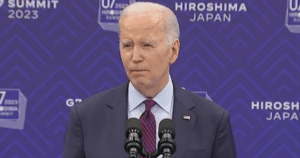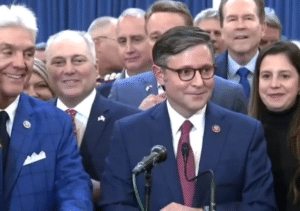Former Georgian Prime Minister Claims Election Was Rigged and Tied to Russian Influence
Former Georgian Prime Minister Nika Gilauri has raised serious allegations about the legitimacy of Georgia’s recent elections, describing them as rigged and influenced by Russia. His comments come amid growing tensions within the country’s political landscape, where opposition protests and international condemnation have intensified.
According to Fox News, Gilauri criticized the Georgian Dream party for its ties to Russia and the country's recent election results, saying they were orchestrated to undermine Georgia’s European integration. The former leader’s remarks have sparked further debate about Georgia’s political direction, with many questioning the integrity of the election process and the future of Georgia’s relationship with the European Union.
Tensions Escalate After Election Results
In an exclusive interview with Fox News Digital, Nika Gilauri labeled the recent Georgian elections as fraudulent, claiming that the country now faces Russian-style elections. According to Gilauri, Georgia currently lacks a legitimate parliament, a setback that significantly harms the nation’s ambitions to join the European Union.
The Georgian Dream party, which has been accused of supporting Russian interests, declared victory in the election. Many international observers, including Georgia's president, Salome Zourabichvili, have expressed concerns that the election was manipulated, casting doubts on the legitimacy of the result.
Gilauri’s criticism of the election results mirrors broader concerns from both local and international actors. He also suggested that the political crisis unfolding in Georgia is part of a broader strategy by Russia, comparing the situation to Russian involvement in countries like Romania, Moldova, and Ukraine.
Protests Erupt Across the Country
Thousands of Georgians have taken to the streets in protest, battling freezing temperatures and responding to the perceived injustices of the election. The protests, which began on November 29, have resulted in more than 460 detentions, with reports of severe mistreatment of protesters by authorities. Amnesty International has raised alarms about the violent tactics used by security forces to suppress dissent, with approximately 300 individuals reporting physical abuse.
As the protests continue, many Georgians are voicing their frustration with the government’s actions and their growing fear of Russian influence. The situation has created a deep divide within the country, with some supporting the current government’s stance and others calling for a shift towards Europe.
Gilauri’s criticism of the election results mirrors broader concerns from both local and international actors. He also suggested that the political crisis unfolding in Georgia is part of a broader strategy by Russia, comparing the situation to Russian involvement in countries like Romania, Moldova, and Ukraine.
President Zourabichvili Calls for Electoral Reform
Salome Zourabichvili, Georgia's pro-European president, has been at the center of the political crisis. She has publicly called the elections fraudulent, insisting that the current parliament lacks legitimacy. In response, Zourabichvili has vowed to find a solution to the ongoing crisis before the end of her term on December 29.
Zourabichvili has expressed a willingness to negotiate with the Georgian Dream party to schedule new elections, but her demands for electoral reform have been met with resistance. Despite this, she has remained firm in her position, stating that any agreement on new elections must be finalized by the end of her presidency.
The president’s calls for electoral reform come as the opposition has increasingly voiced its concern about the government’s ties to Russia. Many are urging Zourabichvili to take stronger action to distance Georgia from Russian influence and reaffirm the country’s European aspirations.
Future of Georgia's EU Aspirations in Doubt
While much of the Georgian population supports the country’s integration into the European Union—up to 83% according to some polls—this aspiration appears increasingly distant under the current government. The Georgian Dream party’s decision to halt the European integration process has drawn condemnation from the West, particularly after the controversial passage of the "foreign agent" law.
The law requires citizens, NGOs, and media outlets receiving foreign funding to register as foreign agents, a move that many see as a step back in Georgia’s progress toward European alignment. The European Union froze Georgia’s integration process in response to this legislation, and the United States imposed sanctions on Georgian officials associated with the law’s passage.
These actions have further alienated Georgia from its European allies and prompted concerns about the long-term impact on the country’s future. The sanctions imposed by the U.S. have also led to a significant loss of aid, which could have lasting consequences for Georgia’s economy and development.
International Condemnation and Sanctions
The controversial election and the passage of the "foreign agent" law have triggered a significant international backlash. The European Union, the United States, and other Western allies have condemned the Georgian Dream party’s actions, particularly its undermining of democratic institutions and the country’s European aspirations.
The United States has gone a step further, imposing sanctions and halting $95 million in assistance to the Georgian government. The U.S. State Department has expressed deep concern over the Georgian government’s treatment of dissent and its increasing tilt toward Russia, with significant portions of the population supporting European integration despite government opposition.
Western governments have also called for Georgia to address the allegations of election fraud and voter intimidation. As the international community continues to pressure Georgia to take action, the country’s political future remains uncertain.
Political Drama Intensifies as President Zourabichvili Faces Pressure
As the political situation in Georgia grows more polarized, tensions between Zourabichvili and the ruling Georgian Dream party have deepened. The Georgian Dream party, which has the support of the Kremlin, appears to be gaining ground as it seeks to consolidate its power. The election results, which showed the party securing about 54% of the vote, have been widely disputed, with opposition figures claiming that the election was rigged and that voter intimidation played a significant role.
Georgian Prime Minister Irakli Kobakhidze, a key member of the Georgian Dream party, has suggested that President Zourabichvili should be imprisoned if she refuses to step down. Kobakhidze's rhetoric has further heightened tensions between the president and the ruling party, leading many to question whether the country is on the brink of a constitutional crisis.
The growing divide between Zourabichvili and the Georgian Dream party highlights the intense political drama unfolding in Georgia. The outcome of this standoff will likely shape the country’s political future for years to come.
Growing Influence of Russian Interests
Gilauri’s comments about the election being "written in Moscow" have underscored the growing influence of Russia in Georgia’s political affairs. Putin, Russia’s president, has expressed praise for Georgia’s government, particularly after Prime Minister Kobakhidze announced the cessation of Georgia’s European integration process. This move has fueled fears among opposition figures that Georgia is slowly becoming more aligned with Russian interests at the expense of its European ambitions.
Gilauri argued that this development mirrors Russia’s influence in other countries, such as Moldova and Ukraine, where similar political maneuvers have been observed. He warned that Georgia could face a similar fate if the current political trajectory continues.
Prospects for Change Uncertain
As Georgia’s political crisis deepens, the prospects for change remain uncertain. Zourabichvili has called for new elections and emphasized the need for dialogue, but the future of Georgia’s democracy hangs in the balance. With opposition leaders questioning the legitimacy of the current government and the growing presence of Russian influence, the path forward for Georgia seems increasingly fraught with uncertainty.
Despite these challenges, there remains a strong desire among many Georgians for the country to pursue European integration. The outcome of this political crisis could determine whether Georgia moves closer to Europe or finds itself under the increasing influence of Russia.




